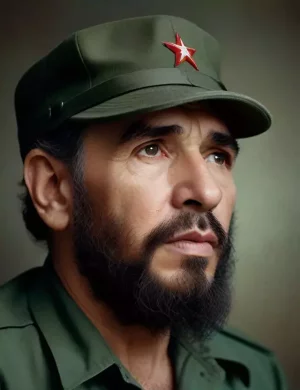Fidel Castro
Early Life and Background
Fidel Castro was born on August 13, 1926, in Birán, Cuba. He came from a privileged background and received a Jesuit education before pursuing a law degree at the University of Havana.
Rise to Power
Fidel Castro became involved in revolutionary politics during his university years, leading a failed coup attempt against the government of Fulgencio Batista in 1953. After a period of exile, he returned to Cuba in 1956 and launched a guerrilla war against Batista's regime.
Revolution and Leadership
In 1959, Fidel Castro and his revolutionary forces successfully overthrew Batista's government, leading to Castro's rise to power as the Prime Minister of Cuba. He later became the country's President, ruling for nearly five decades until his retirement in 2008.
Political Ideology
Fidel Castro was a staunch advocate of socialism and communism, implementing policies that aimed to redistribute wealth and resources in Cuba. His government nationalized industries and land, implemented universal healthcare and education, and maintained a confrontational stance towards the United States.
Legacy and Controversy
Fidel Castro's legacy is a subject of debate, with supporters praising his efforts to improve literacy, healthcare, and living standards in Cuba, while critics condemn his authoritarian rule, human rights abuses, and suppression of political dissent.
Later Years and Death
Fidel Castro retired from politics in 2008 due to failing health, handing over power to his brother, Raúl Castro. He died on November 25, 2016, at the age of 90, leaving behind a complex and polarizing legacy.
